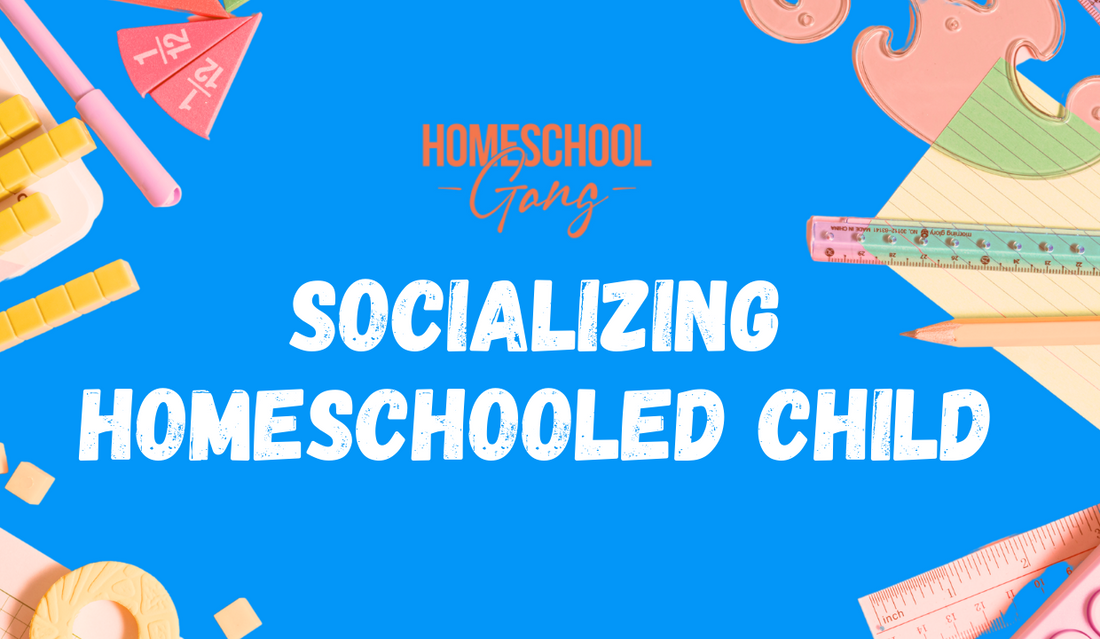
How to Socialize Your Homeschooled Child
Share
One of the most common concerns about homeschooling is whether children who are homeschooled can get enough social interaction. This concern is understandable, as social skills are critical for personal and professional success. Fortunately, there are numerous ways to ensure that homeschooled children have ample opportunities to interact with their peers and develop strong social skills. Here are some effective strategies parents can use to socialize their homeschooled child:
1. Join Homeschooling Co-ops
Homeschooling co-ops are groups of homeschooling families who collaborate to share resources, teach classes, and provide social opportunities for their children. These co-ops typically meet regularly and offer a range of activities, from academic classes and art workshops to sports and field trips.
- Benefits: Co-ops allow children to learn with and from other children, which can mimic traditional classroom settings.
- Social Skills: Participating in a co-op can help develop teamwork, communication, and interpersonal skills among homeschooled children.
2. Enroll in Extracurricular Activities
Extracurricular activities provide homeschooled children with a venue to pursue interests and interact with peers outside of the academic context. These can include music lessons, art classes, robotics clubs, and more.
- Community Classes: Many communities offer after-school programs through parks and recreation departments or local YMCA branches.
- Special Interest Groups: Encourage your child to join groups that align with their hobbies and interests, which can lead to friendships and improved social skills.
3. Participate in Sports Teams
Sports teams offer a fantastic way for children to engage in regular social interactions while also benefiting from physical activity. These teams can be through local leagues, community centers, or even homeschool-specific sports organizations.
- Team Sports: Activities like soccer, basketball, and baseball require cooperation and communication, which are great for social development.
- Individual Sports: Sports such as tennis, martial arts, and gymnastics can also provide social interaction opportunities, especially during competitions and practice sessions.
4. Attend Local Community Events
Community events are a great way for homeschooled children to meet and interact with other kids. These can range from festivals and art shows to volunteer opportunities.
- Festivals and Workshops: Look for events that align with your child’s interests to make the experience both fun and enriching.
- Volunteering: Engaging in community service can provide social interaction with a wide range of ages and backgrounds, fostering empathy and teamwork.
5. Leverage Library Programs
Many libraries offer programs and clubs specifically designed for children and teens, such as book clubs, writing workshops, and science labs.
- Educational and Fun: These programs provide a structured setting where homeschooled children can discuss ideas and collaborate on projects.
- Routine Meetings: Regular meetings can help build ongoing relationships and a sense of community among participants.
6. Plan Regular Social Gatherings
Organizing playdates, picnics, or other social gatherings with other homeschooling families or with children from the neighborhood can help your child build lasting personal relationships.
- Playdates: These are especially good for younger children and help in developing basic social norms like sharing and cooperation.
- Group Projects: Consider setting up group projects that kids can work on together, whether it's a science fair entry or a community garden.
Conclusion
While homeschooling does take children out of the traditional school setting, it doesn't have to limit their social development. With the strategies outlined above, parents can ensure their homeschooled children have plenty of opportunities to interact socially and develop the necessary skills to navigate various social situations. By actively engaging in a diverse range of social and educational activities, homeschooled children can enjoy a rich, well-rounded social life.
